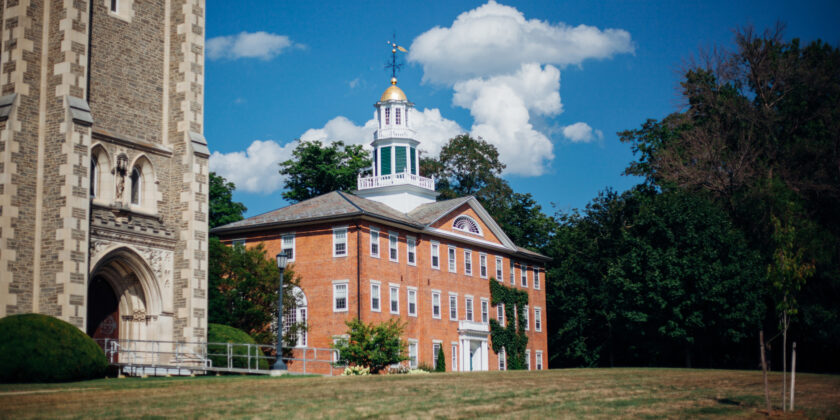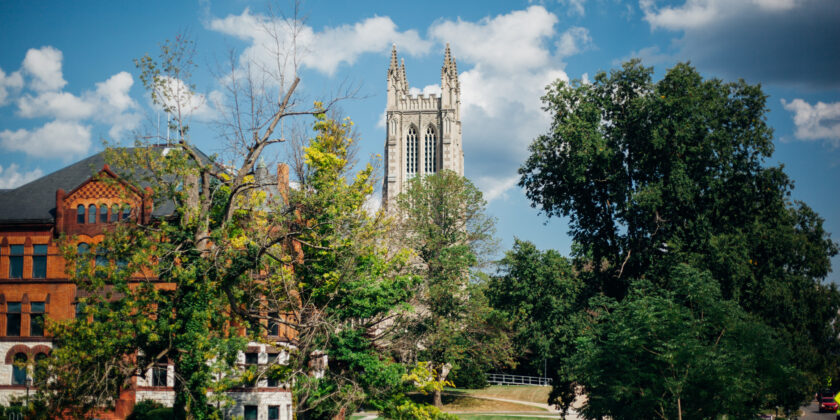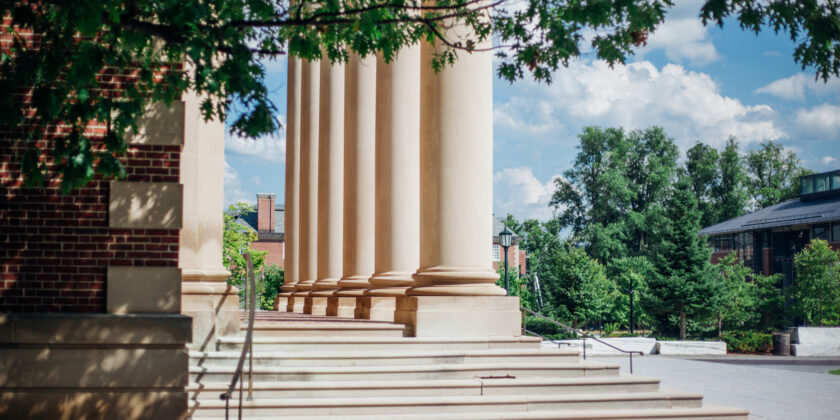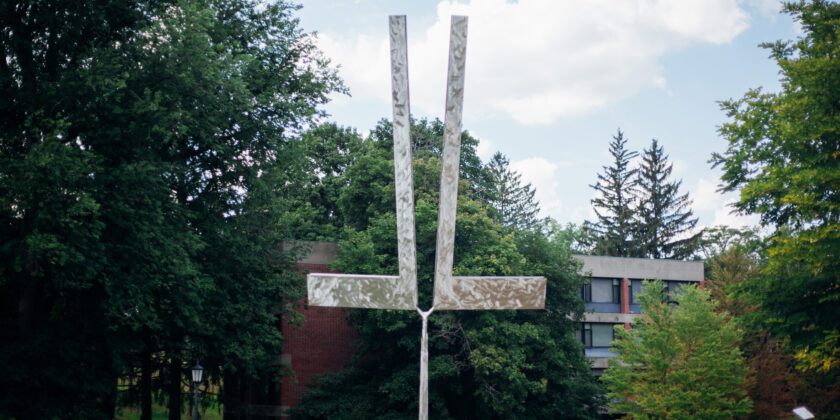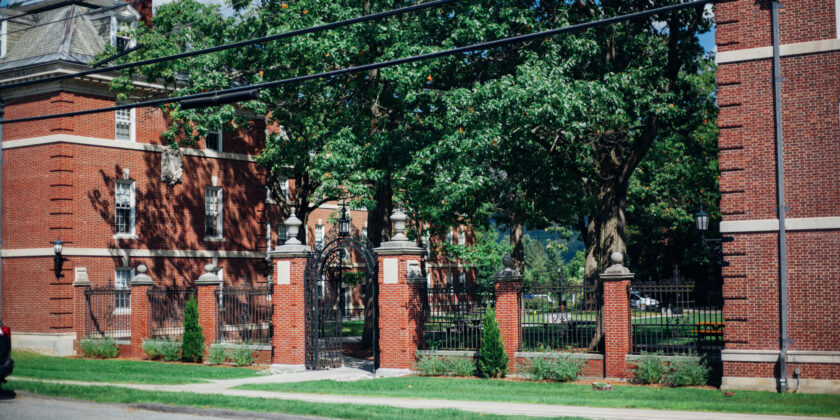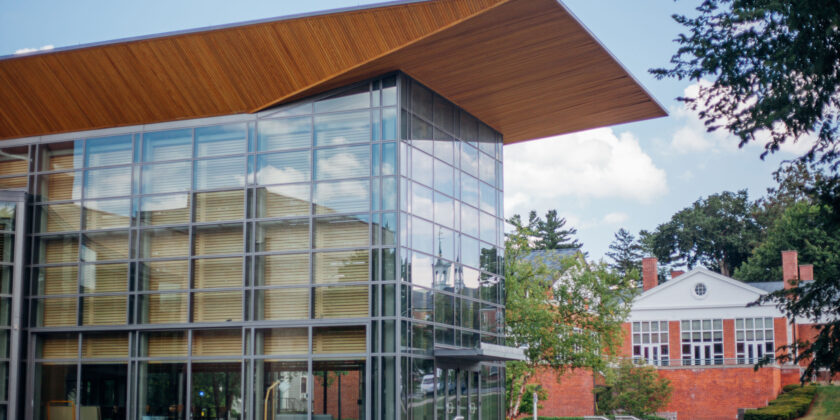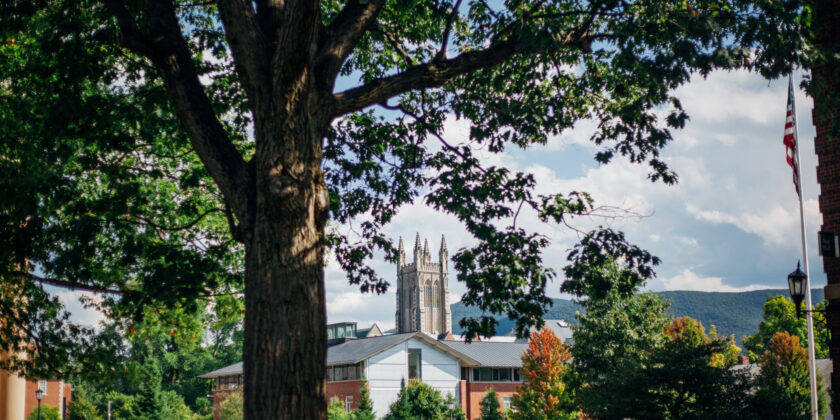Small tweaks to the language on their website might not result in big changes in their admissions office—at least not anytime soon—but we are hopeful. Penn has historically admitted a crazy number of legacy applicants, although it has gone down slightly in recent years. This is just one of quite a few factors why a non-institutional priority applicant is often wasting their ED card applying to Penn.
Read the article via the DP here or below.
—-
Penn is refining its legacy admissions policy under Dean of Admissions Whitney Soule, according to interviews with 14 alumni, students, and college admissions experts.
During the Class of 2026 admissions cycle last year, Penn Admissions updated its information webpage for first-year applicants, The Daily Pennsylvanian found by examining internet archives. Nearly every word on the webpage stayed the same — except for the paragraph about legacies. This change was so subtle that, when it was brought to the attention of multiple college consultants and admissions experts, they said that this was the first time they had heard about it.
Penn’s longstanding definition of a legacy applicant — the child or grandchild of an alum — has not changed. However, Penn no longer implies that legacies should apply through the Early Decision Program to have the best shot at getting in. In addition, Penn has phased out admissions information sessions specifically for legacy families.
A change to the policy’s wording
“Legacies who apply to Penn—like all applicants—receive thorough consideration in the application process,” the policy now reads.
Under the previous wording — which admissions counselors have long used in the advice they give to families — Penn told legacy applicants that their status as a legacy would be given the “most consideration” during the Early Decision Program.
1986 Wharton graduate Laurie Kopp Weingarten, the president of One-Stop College Counseling and the parent of a Penn legacy graduate, said that Eric Furda, the previous dean of admissions, made it clear that applicants who wanted “any type of leg up” should apply ED, even if legacies were still accepted during the Regular Decision round. Weingarten and five other experts that the DP spoke with referred to legacy preferences as a “tiebreaker” between two applicants who otherwise have equal qualifications.
In response to a request for comment about whether the new webpage wording represents a formal policy change, Soule wrote to the DP that it is Penn Admissions’ practice to “recognize the legacy relationships among our applicants.”
“Like the rest of our application processes that evolve over time, we continue to adapt and refine our approaches,” Soule wrote. “When I joined the office, I wanted to ensure that the information on our website — and across all of our communications — was as clear as possible, and that it accurately described our current process for recognizing the legacy relationships among our applicants.”
Soule began her role in July 2021, and the Class of 2026 admissions cycle was her first as dean. On June 21, 2022, Soule said in a webinar that legacy is “one thing” considered by Penn, “but it doesn’t come in front of everything else,” citing how the majority of legacy applicants are rejected.
In addition, on the Common Application this fall, Penn Admissions continued to ask applicants to indicate any family connections to Penn. However, alumni and admissions experts told the DP that the new wording on Penn’s website added a layer of secrecy for applicants trying to understand Penn’s admissions process — or represented a small step toward eliminating the legacy policy completely.
“They’re just being less candid now,” Brian Taylor, a managing partner of the college counseling service Ivy Coach and an opponent of legacy admissions, said.
To James Murphy, a higher education advocate at Education Reform Now, the updated wording “dropped the most interesting thing” about Penn’s legacy policy. Because ED acceptance is binding, he described the old wording as a pact between Penn and legacy applicants: “If we’re going to give you this little boost, you have to give something to us.”
With the update to the webpage, Murphy and other experts said the legacy policy is not as clear, leaving it up to a variety of interpretations. Richard Kahlenberg — who testified as an expert witness in the ongoing affirmative action case that is now before the Supreme Court — said that Penn’s wording change was “a baby step in the right direction” because it suggests that legacies receive consideration “like all applicants.”
“To the extent that the new wording sends a signal to all applicants that they are welcome, that’s a small positive step,” Kahlenberg said. “It really comes down to a question of how the preference works in practice, of course, not just what they say on the website — and that’s a hard thing to measure without data.”
From 2017 to 2020, between 22 and 25% of applicants admitted to Penn during Early Decision were legacies, according to data provided by Penn Admissions during the admission cycles for the Class of 2022 through the Class of 2025.
In addition, the rate at which legacies were accepted through ED has been higher than the rate at which they applied, according to the most recent available figures on Penn’s ED legacy application pool. These figures show that 16% of the Class of 2022 ED applications were legacies. However, legacies constituted 25% of Class of 2022 ED admits, indicating that legacies were more likely to get accepted than would be expected from their size.
For the Class of 2026 and Class of 2027 ED rounds, Penn Admissions stopped sharing data on legacy admits. Last March, Penn announced it would not immediately share additional data about admitted students, alongside two peer institutions.
When asked for the Class of 2026 and Class of 2027 figures on legacy ED admissions, Penn Admissions did not provide them and pointed the DP to the Penn Admissions Blog and Class of 2026 page, which includes data on multiple other common admission figures.
“In line with the shift in what we share about admitted students, we chose to celebrate the students who were invited to the Penn community as individuals and in the ways that we got to know them through their unique combinations of identity, accomplishment, and talent,” a spokesperson for Penn Admissions wrote in an email.
At a Board of Trustees meeting last June, Soule told the board that 15% of the Class of 2026 were legacies, in line with previous years and the expectations of most experts that the DP spoke with.
The phasing-out of First Fridays
Beyond the change in wording and the end of public ED legacy data, admissions experts said it was difficult to definitively say whether Penn is choosing to phase out legacy admissions. Some, however, said that the discontinuation of First Friday drop-in hours could be another potential indicator.
First Friday events began in 2012 under Furda “for Penn alumni, faculty/staff and their children approaching college age who have attended Penn Admissions Information Sessions … and participated [in] on campus tours, but have additional questions about the admissions process,” according to the Penn Almanac.
These events are no longer listed on Penn Admissions’ website, and Taylor and Weingarten said they had reason to believe the events were discontinued during the past few years.
Peter Arcidiacono, another testifying expert in the affirmative action litigation before the Supreme Court, said eliminating the First Friday events could be indicative of a policy change and cited increased offerings from universities like Penn for applicants from historically underrepresented backgrounds.
“With our increased presence in online programming and our focus on creating more digital resources over the past several years, we now have the ability to reach and engage with all of our audiences around the world — including alumni — in meaningful ways,” Soule wrote in response to a question about the status of First Friday events. “Our goal was to make sure that the same, helpful information is available to everyone through online information sessions and YouTube resources.”
First Friday events evolved from more explicit legacy admissions practices that were discontinued during Furda’s tenure: legacy “interviews,” the student group Linking Legacies, which connected current Penn legacy students to legacy applicants; and the Penn Alumni Council on Admissions, which operated a center that provided admissions information and legacy advising sessions.
“I have intentionally made sure, over the last two years, to distance myself from Penn Admissions out of respect for Dean Soule and her team to do their jobs for the university,” Furda wrote in a statement, pointing the DP to a book he wrote and previous comments.
1968 College for Women graduate Elsie Howard, who chaired the ACA Advisory Board, said that she, Penn Alumni leadership, and Furda closed the council because “alumni started to believe that the ACA would get their kids into Penn,” which meant it was not serving “the University or anybody properly.” Penn’s applicant interview program is now known as the Penn Alumni Interview Program.
Part of the goal of Linking Legacies was to “dispel any myths” for legacy applicants, 2011 College graduate and Linking Legacies member Jenna Stahl said. She described an “internal conflict” about entering Penn as a legacy.
“I felt a little bit like I had to prove myself,” Stahl said. “I was acutely aware that in some ways… there could be this perception that ‘she got in because she had a little bit more of a leg up.'”
Penn’s philosophy on legacy admissions
No matter how Penn practices legacy preferences, students, professors, and counselors agreed that the University, like some of its peers, is motivated to downplay its policy. Penn could be downplaying its policy, they said, because the University sees the days of legacy preferences as numbered due to increasing political and cultural pressure — or, more likely, the upcoming Supreme Court ruling on affirmative action.
“Changes in wording are a reflection of the changes in the political landscape,” Aviva Legatt, the founder of Ivy Insight Group, wrote to the DP regarding universities updating the language of their policies.
Taylor said the Operation Varsity Blues scandal has also helped put legacy admissions “on its last legs,” but if the Supreme Court eliminates affirmative action, universities would not be able to justify maintaining any legacy bump.
Weingarten added that Penn could be trying to quietly downplay the extent of its legacy admissions practices so that they do not “alienate” or turn away alumni who make large donations.
According to 1972 College graduate Jeffrey Rothbard, whose son was deferred and ultimately rejected from Penn, some legacy donors have already lessened their donations. He said that some alumni have voiced “disdain” when their children are denied, alleging that Penn’s evolving admissions practices are correlated with a “negative impact” on the endowment.
When Johns Hopkins University quietly discontinued its legacy admissions policy, the school’s president said that the change was accepted by the alumni community. In addition, a 2010 report found “no statistically significant evidence” that legacy preferences on their own increase the likelihood that an alum will make a donation.
College sophomore Selena Rosario, the president of the FGLI Dean’s Advisory Board, said she believed that any changes in policy wording or event offerings are being made by Penn to “save face” and “not garner more attention” rather than fully eliminate legacy considerations. She said that the board has discussed the topic of legacy admissions and what they view as the need to change Penn’s policy.
Rosario’s sentiments were echoed by College sophomore and Penn First Board Finance and Operations Chair Khaliun Dorjmenchim.
“In my opinion, [legacy admissions] places a step stool for someone who’s already seven feet tall,” Dorjmenchim said. “Because when you’re looking at it from the perspective of a first generational constituent, you’re already so behind.”
Both of Engineering sophomore Spencer Ware’s parents went to Penn, but he said that the policy was “obviously unfair.”
“My ideal admissions process would be a bit more merit-based in terms of testing, accomplishments, and interests, just so that more people who deserve to go to elite universities get to, whether or not they come from wealthier or poorer socioeconomic backgrounds,” Ware said.
*Stay in the know! Subscribe*

